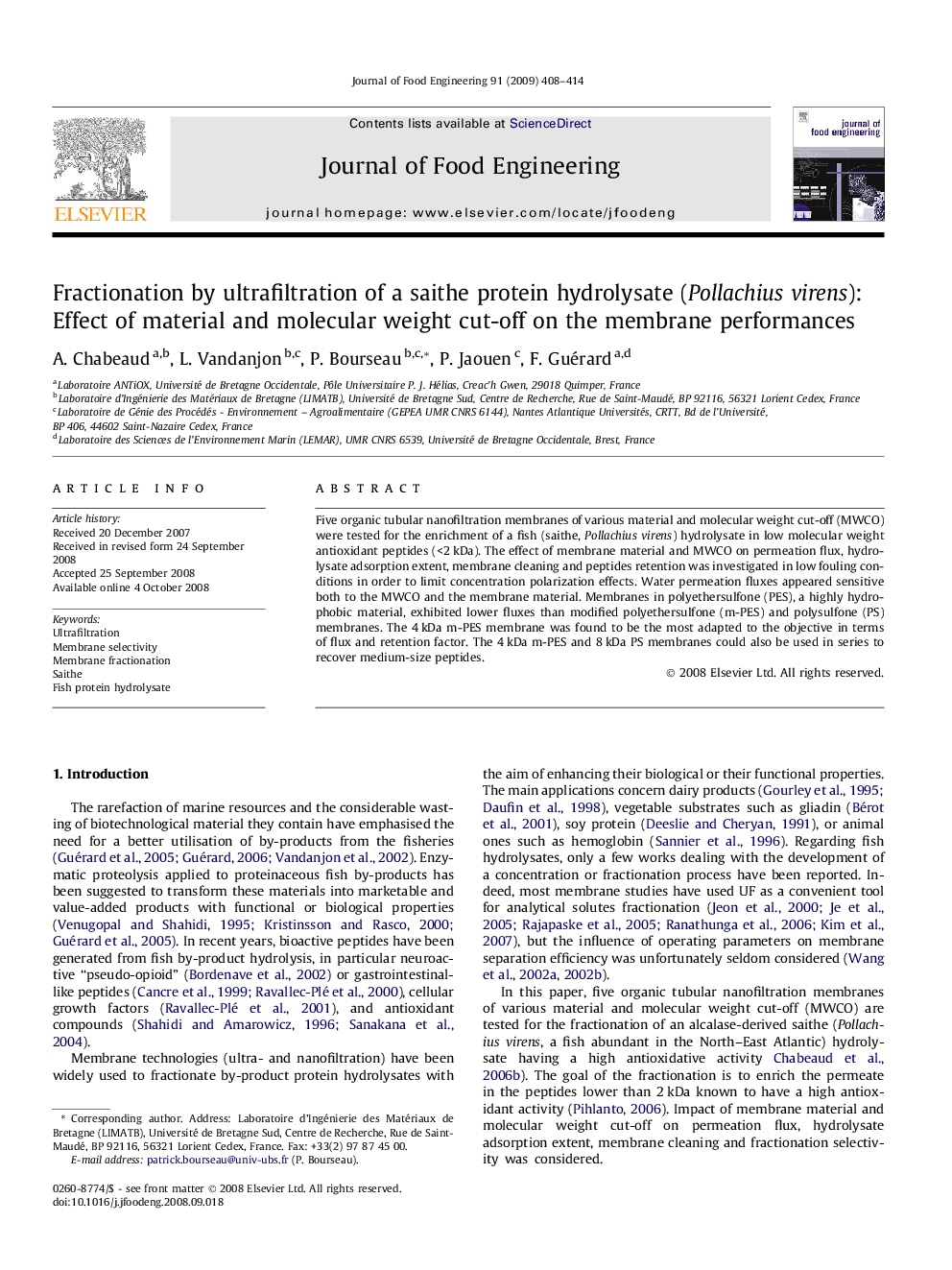| Article ID | Journal | Published Year | Pages | File Type |
|---|---|---|---|---|
| 225010 | Journal of Food Engineering | 2009 | 7 Pages |
Five organic tubular nanofiltration membranes of various material and molecular weight cut-off (MWCO) were tested for the enrichment of a fish (saithe, Pollachius virens) hydrolysate in low molecular weight antioxidant peptides (<2 kDa). The effect of membrane material and MWCO on permeation flux, hydrolysate adsorption extent, membrane cleaning and peptides retention was investigated in low fouling conditions in order to limit concentration polarization effects. Water permeation fluxes appeared sensitive both to the MWCO and the membrane material. Membranes in polyethersulfone (PES), a highly hydrophobic material, exhibited lower fluxes than modified polyethersulfone (m-PES) and polysulfone (PS) membranes. The 4 kDa m-PES membrane was found to be the most adapted to the objective in terms of flux and retention factor. The 4 kDa m-PES and 8 kDa PS membranes could also be used in series to recover medium-size peptides.
